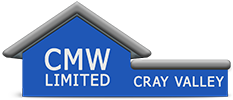
Introduction
Ensure safety and durability in construction and engineering projects. Whether you're building a skyscraper or assembling a simple household shelf, the structure's integrity depends heavily on the quality of its components. Bolts and anchors play a crucial role in holding everything together securely. In this blog, we'll explore the significance of high-quality bolts and anchors in ensuring the safety and stability of your projects.
Understanding Bolts and Anchors
Before delving into their importance, let's first understand what bolts and anchors are and their respective functions.
Bolts are threaded fasteners typically used to join two or more components. They come in various sizes, materials, and designs for different applications. Common types include hex bolts, carriage bolts, and anchor bolts.
Anchors: Anchors are devices used to secure objects to a surface. They provide stability and support by distributing the load over a larger area. Anchors can be mechanical, such as expansion anchors and screw anchors, or chemical, like epoxy anchors.
The Importance of High-Quality Bolts and Anchors
Safety: One primary reason to use high-quality bolts and anchors is safety. Inferior or faulty fasteners can compromise the structural integrity of a building or equipment, leading to catastrophic failures. High-quality bolts and anchors undergo rigorous testing and meet industry standards to ensure they can withstand the intended loads and conditions.
Durability: Projects are often subjected to environmental factors such as temperature changes, moisture, and corrosion. Low-quality bolts and anchors are prone to rust, degradation, and deformation over time, compromising their ability to hold things together securely. High-quality fasteners are made from durable materials such as stainless steel, ensuring longevity and reliability even in harsh conditions.
Performance: A project's performance depends on the performance of its components. Using high-quality bolts and anchors ensures proper assembly and alignment, which is crucial for the structure's overall functionality. Properly installed and secured fasteners minimize the risk of loosening, shifting, or failing under stress, thus enhancing the project's performance and efficiency.
Compliance: Construction and engineering projects are subject to building codes, regulations, and standards to ensure safety and quality. Using substandard bolts and anchors can result in non-compliance and legal liabilities. High-quality fasteners are manufactured by industry standards and specifications, ensuring your project meets regulatory requirements.
Cost-effectiveness: While high-quality bolts and anchors may have a higher initial cost than their cheaper counterparts, they offer more excellent value in the long run. Investing in quality fasteners reduces the likelihood of costly repairs, replacements, and liabilities associated with failures or accidents. Moreover, durable fasteners require less maintenance, resulting in overall cost savings throughout the project's lifecycle.
Choosing the Right Bolts and Anchors
Selecting the appropriate bolts and anchors for your project requires careful consideration of several factors:
Load requirements: Determine the maximum load the fasteners need to support and choose bolts and anchors with sufficient strength and capacity.
Environmental conditions: When selecting materials, consider factors such as moisture, temperature, and exposure to corrosive substances to ensure longevity and resistance to degradation.
Surface type: Different surfaces require different types of anchors. Concrete, brick, wood, and metal surfaces each have unique properties that dictate the choice of anchors.
Installation method: Consider the ease of installation and the tools required, especially for projects with tight deadlines or complex assembly requirements.
Certifications and standards: To guarantee quality and performance, ensure that the bolts and anchors you choose comply with relevant industry standards and certifications.
FAQs
Why are high-quality bolts and anchors critical for construction projects?
High-quality bolts and anchors ensure project safety by providing reliable support and stability, preventing structural failures and accidents.
How do I choose the correct bolts and anchors for my project?
Consider factors such as load requirements, environmental conditions, surface type, installation method, and compliance with industry standards when selecting bolts and anchors.
What materials are commonly used for high-quality bolts and anchors?
Stainless steel, carbon steel, and alloy steel are commonly used for high-quality bolts and anchors due to their durability and resistance to corrosion.
Can I reuse bolts and anchors from previous projects?
Reusing bolts and anchors from previous projects is generally not recommended as they may have undergone wear and tear, compromising their integrity and reliability.
How often should I inspect and replace bolts and anchors in my projects?
Regular inspections should be conducted to check for signs of wear, corrosion, or damage. If they no longer meet safety or performance standards, bolts and anchors should be replaced to ensure project integrity and longevity.
Conclusion
The importance of high-quality bolts and anchors must be balanced when it comes to securing your projects. From ensuring safety and durability to compliance with regulations and optimizing performance, investing in quality fasteners is essential for the success and longevity of any construction or engineering endeavour. By choosing the correct bolts and anchors and adhering to best practices in installation and maintenance, you can safeguard your projects and ensure their success for years to come.
If you want to take a closer look at our range of Bolts & Anchors, click here. If you want to contact or find out more about this blog posts author, Dave click here.
